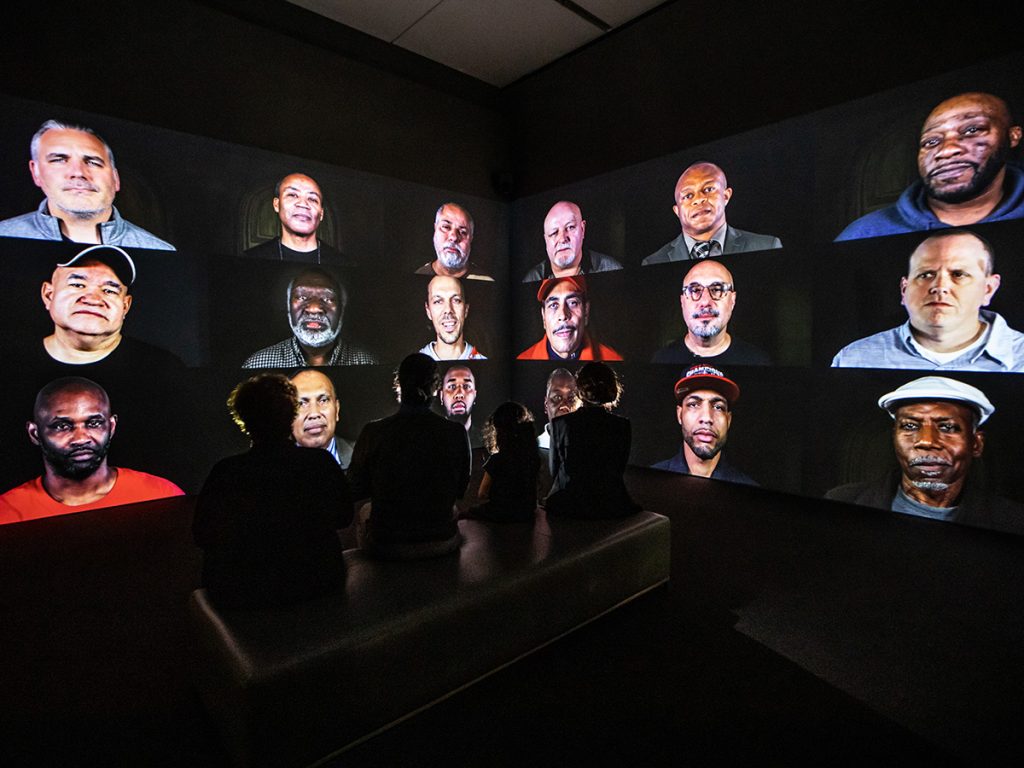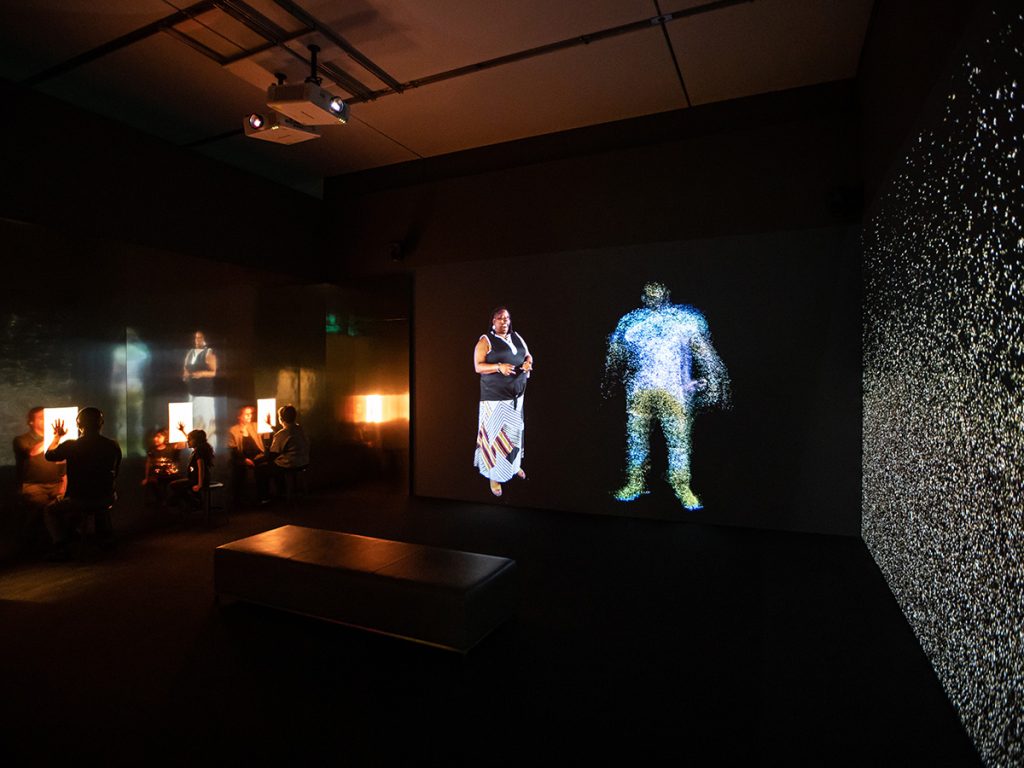VMA Professor’s ‘Poetic Cyber Movement’ Tackles Mass Incarceration at the ICA

By Erin Clossey
People investigate how mass incarceration affects low-income families and communities of color through many lenses: poverty rates, education levels, health metrics.
Visual and Media Arts Assistant Professor Rashin Fahandej uses the lullaby.
Fahandej’s latest multiyear, multimedia installation, A Father’s Lullaby, looks at how mass incarceration has impacted families, partially through men’s recollections of childhood songs — sung with their own children or sung to them by their fathers. Many of the men filmed for the piece have experience with incarceration.
“I asked community members to share lullabies and memories of their own childhood as a way of getting closer to this space of absence and what does it mean for the children who didn’t have that space or opportunity,” Fahandej said in an ICA video about the installation.
A Father’s Lullaby is on exhibit at Boston’s Institute of Contemporary Art (ICA) through December 31 as a winner of this year’s James and Audrey Foster Prize.
“For me, it’s really not about the fathers as much as it is about their childhood and their children’s childhood and how that love could have made a difference,” Fahandej said in an interview with Emerson Today.
The three-part installation begins with an animated graph of incarceration rates from 1925 to 2015, which goes into a 26-minute, five-movement poetic video montage of men singing and recounting their stories.
Phase 2 features three touch screen panels, each an audio portrait of a formerly incarcerated father retelling their life stories, and can only be activated by the viewer placing their hand on the screen.
The third phase, which Fahandej said is central to the piece, is a website where visitors can contribute their own stories, or their reflections on the stories they’ve heard in the installation.
Fahandej, who teaches emerging media at Emerson, said her work typically involves multiyear, research-based projects that focus on challenging social justice issues, but that use points of entry designed to bring people together on a personal level.
“No matter what point of view you have in terms of policy, [the lullaby] automatically brings you to a space of love and intimacy,” she said.

On Tuesday, December 10, Fahandej will lead a guided tour of A Father’s Lullaby, followed by a roundtable discussion, Intervening in Mass Incarceration: From Narrative to Action. One of the participants in the conversation will be Mneesha Gellman, associate professor of political science and director of the Emerson Prison Initiative (EPI), who worked with Fahandej on organizing the roundtable.
Related Story: No Debating It – Exhibit Explores Emerson’s History of Prison Education
Other panelists include Kevin Lockhart, one of the fathers featured in the installation; Danielle Rousseau, assistant professor in criminology at Boston University; and Jeff Smith, supervising U.S. Probation office and facilitator of the Nurturing Fathers program. Kevin Sibley, director of the Boston Office of Returning Citizens, will give opening remarks.
The conversation will touch on ways that stories can generate not just empathy, but real social change.
“I really believe that the space of art and artistic encounter have the capability to move us in a very different way,” Fahandej said in the ICA video.
Categories